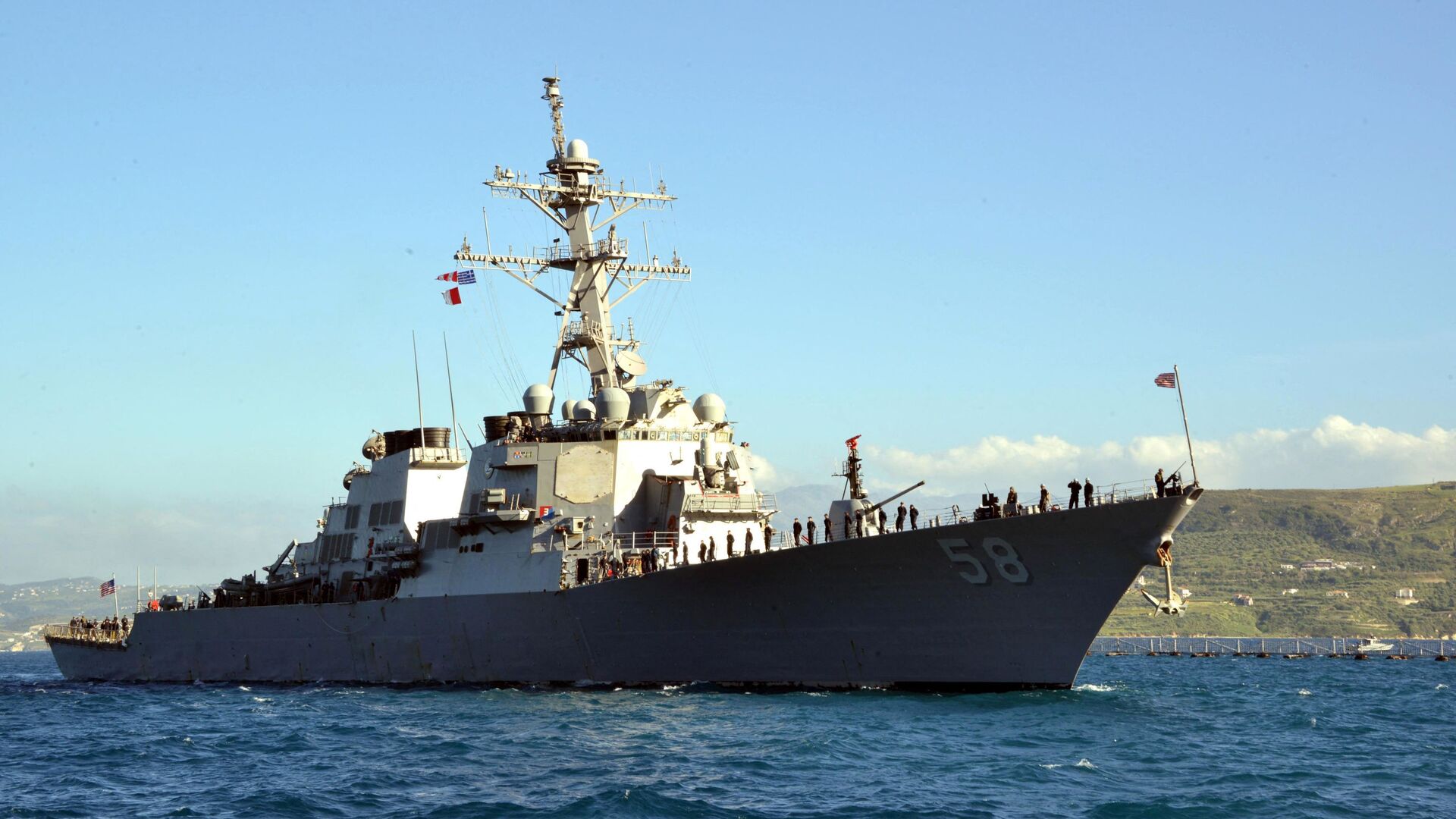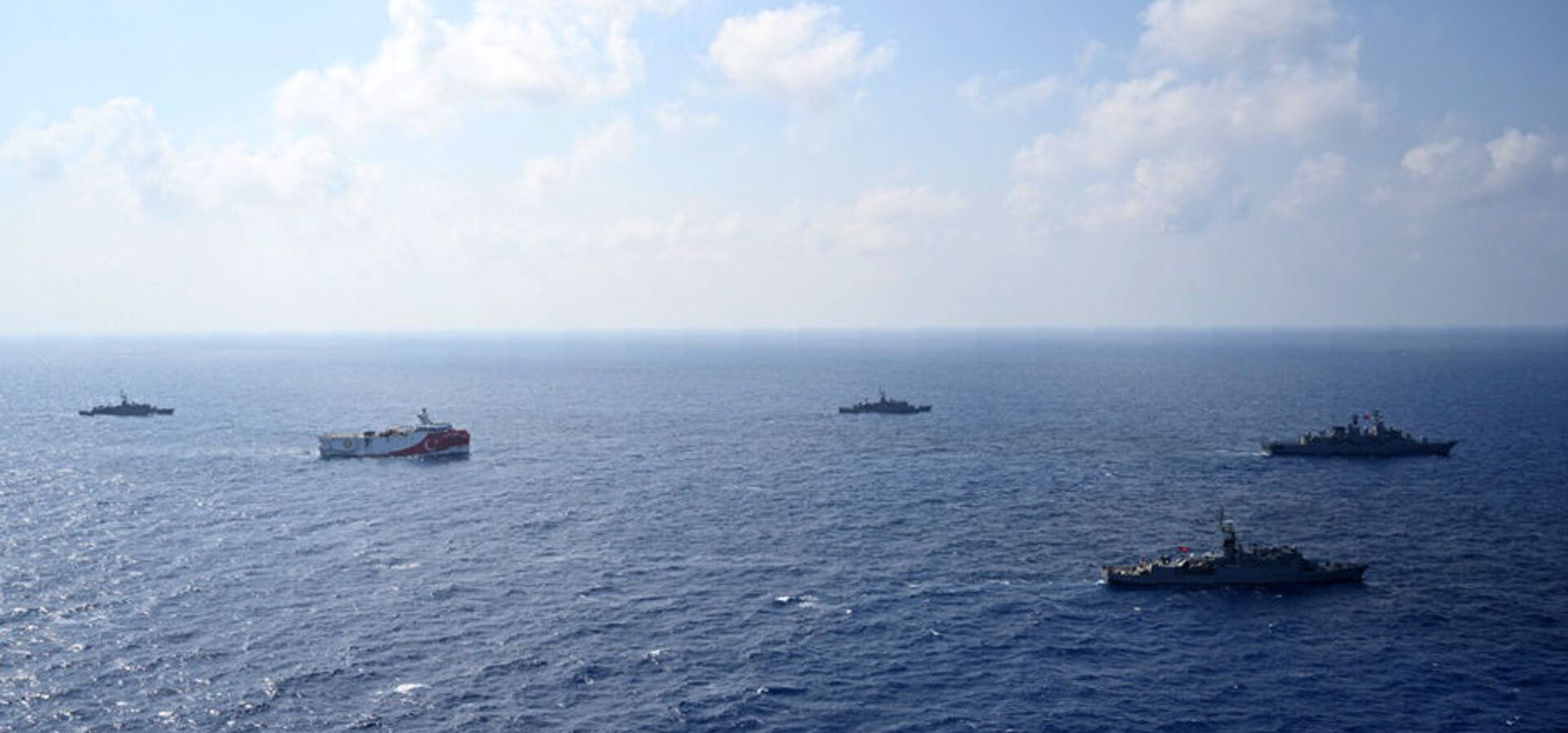US-Greek Bases Pact Signals Bid to Pressure Turkey, Dominate East Mediterranean
09:08 GMT 16.10.2021 (Updated: 13:25 GMT 06.08.2022)

© AFP 2023 / MC2 JEFFREY M. RICHARDSON
Subscribe
WASHINGTON (Sputnik) - The new expanded US-Greece defence pact shows that Washington wants to pressure Turkey while securing a strategic position to counter threats from the Middle East and control the Eastern Mediterranean, analysts said.
The United States and Greece on Thursday signed an amendment to their existing mutual defense agreement that allows US forces to train and operate from additional locations inside the country.
Strategic Positioning
Tensions between Turkey and Greece have been on the rise over maritime and airspace claims while Ankara has taken exception to a new defence agreement Athens signed with France. On Friday, State Department spokesperson Ned Price, when commenting on the renewed deal, said Washington supports efforts to de-escalate tensions in the Eastern Mediterranean. However, some experts think Washington has broader aspirations.
"It could be that the United States wants to pressure Turkey to be a more cooperative host of US bases, although it could backfire and cause Turkey and Russia to increase cooperation," Independent Institute Center for Peace and Liberty Ivan Eland told Sputnik about the US motivation behind the deal.
Eurasia Center Vice President Earl Rasmussen observed that the move comes while Turkey has had multiple disagreements with Greece in the region over the exploration of energy resources, which will continue.
"Hence, such a relationship with the US and also with France provides some reassurances to Greece," Rasmussen told Sputnik.
Eland said, in addition to pressuring Turkey, the deal also affords the US the opportunity to pursue other strategic aims.
"Greece is relatively near the Persian Gulf and parts of the Middle East, and US forces could launch from there for operations to guarantee oil supplies," Eland said.
Rasmussen said the agreement provides the US with a more permanent and diverse presence that would boost access to Africa as well as the Middle East.
"Souda Bay on Crete and now the more permanent inclusion of the use of Alexandroupoli port, and F-16s at Larissa Air Base provide a significantly increased presence in the Mediterranean region," he said. "It provides a permanent naval, drone, and fighter aircraft presence hence improving surveillance capabilities in the entire region."
Rasmussen said the agreement should also be understood as a bid by the Biden administration to boost its presence and credibility in the region after its humiliation in Afghanistan, reduced influence in Iraq and Syria, and the recent France-Greece defence pact.
Mixed-Up Alliances May Weaken NATO
However, historian and political commentator Dan Lazare warned that by expanding its military presence in Greece, the United States was entangling itself far more in the rivalries of an exceptionally complicated region.
"The US response so far has been to side with Greece against Turkey, but with Turkey against Russia and Iran," Lazare said. "It sides with Armenia due to the large Armenian diaspora in the US, but doesn't like the fact that Armenia's two main allies in the region are Russia and Iran."
Biden is strengthening America's military partnership with Greece but has also approved Turkey's purchase of $6 billion worth of F-16s from Lockheed Martin, he observed.
"Washington opposes Turkey except when it doesn't, and supports Greece except when it gets in the way of broader strategic interests," Lazare said. "The result is to drive everyone crazier than they already are."
In the long run, Lazare believes the establishment of the new bases will further weaken the NATO alliance.
"When you throw in the recent AUKUS [Australia-UK-US] deal, it's clear that NATO is fracturing along multiple lines as Italy goes fascist," he said.
Meanwhile, Lazare added, France and Germany were at loggerheads with fellow NATO member states in Eastern Europe, while the United States is increasingly preoccupied with its Anglo-American alliance against China,
"The gods first make mad those whom they ultimately destroy," Lazare concluded.


